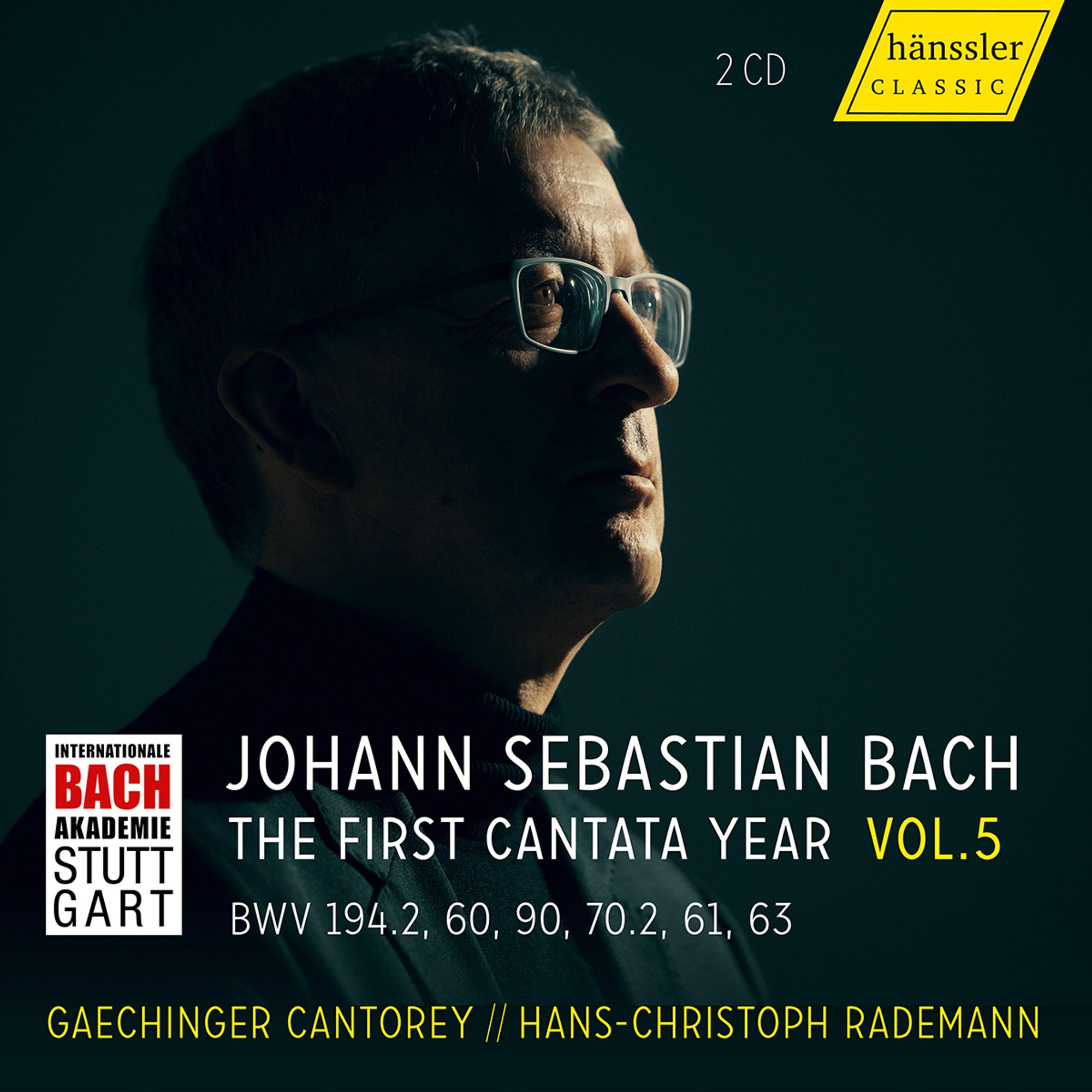Die Bach-Tradition der Gaechinger Cantorey geht bis auf das Gründungsjahr 1954 (damals Gächinger Kantorei Stuttgart) zurück, als Helmuth Rilling das Ensemble als A-cappella-Chor ins Leben rief. 1965 begann eine Zusammenarbeit mit dem ebenfalls von Rilling gegründete Bach-Collegium Stuttgart. 2016 übernahm Hans-Christoph Rademann, der Chor wurde reformiert, das Ensemble erhielt einen neuen Namen und ein Barockorchester kam hinzu, um ein « ästhetisches langideal des Barock » zu erreichen.
Nun, wie ich schon in meinen vorigen Rezensionen geschrieben habe, ist dieser Stuttgarter Barock-Stil weit weniger extrem, als wir ihn von anderen Ensembles her kennen. Rillings immer sehr musikantische und romantisch gefärbte Interpretationsweise scheint weiterhin präsent zu sein, denn Rademanns Bach-Kantaten klingen sehr versöhnlich und entsprechen sowohl einem tiefen Barock-Gefühl wie auch einer expressiv-romantischen Sichtweise. Somit müsste eigentlich jeder hier auf seine Kosten kommen, zumal Rademanns Interpretationen und das musikalische Resultat herausragend sind.
Die Solisten dieser Kantaten BWV 60, 61, 63, 70.2, 90 & 194.2 sind vorzüglich und bieten wunderschönen und vor allem sehr intelligenten Bachgesang. Das Klangbild dient der Musik, so dass man Bachs Musik quasi in perfekter Klangbelichtung und – balance genießen kann. Demnach ein Bach auf allerhöchstem Niveau, genau wie die vier vorangegangenen Alben.
The Bach tradition of the Gaechinger Cantorey goes back to the founding year of 1954 (then the Gächinger Kantorei Stuttgart), when Helmuth Rilling founded the ensemble as an a cappella choir. A collaboration with the Bach-Collegium Stuttgart, also founded by Rilling, began in 1965. In 2016, Hans-Christoph Rademann took over, the choir was reformed, the ensemble was given a new name and a baroque orchestra was added in order to achieve an « aesthetic long ideal of the baroque ». Now, as I have already written in my previous reviews, this Stuttgart baroque style is far less extreme than we know it from other ensembles. Rilling’s always very musical and romantically tinged interpretation style still seems to be present, because Rademann’s Bach cantatas sound very conciliatory and correspond to both a deep baroque feeling and an expressive-romantic view. So everyone should really get their money’s worth here, especially as Rademann’s interpretations and the musical result are outstanding.
The soloists in these cantatas BWV 60, 61, 63, 70.2, 90 & 194.2 are excellent and offer beautiful and, above all, very intelligent Bach singing. The sound serves the music, so that Bach’s music can be enjoyed in virtually perfect sound exposure and balance. This is Bach at the very highest level, just like the four previous albums.


















